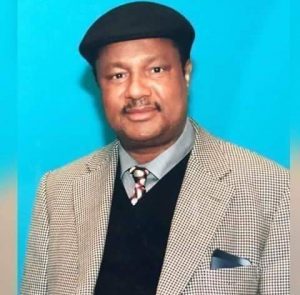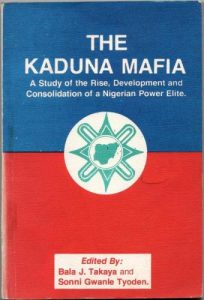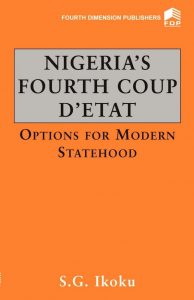All eyes are on the Northern elite again. Provoked this time by the generalized insecurity that has seized the country, the representational turbulence has seen pundits, critics and sundry analysts pouncing on the Northern elite and serving them for breakfast, lunch and dinner. It has been a long experience in which each phase serves as another opportunity to highlight the developmental liability to Nigeria that this elite cluster is perceived to signify. Now, to that perceived uniqueness has been added an insecurity dimension that even legislators, ministers and other state officials of Northern origin openly call Fulani herdsmen. With the Federal Government talking of paying collective ransom to the umbrella organisation of the violent ‘herdsmen’ at the base of the banditry, the debate over the ethno-religious and territorial identity of the bandits is settled.

The late Abubakar Rimi under whom a lot of debates took place within the Left in the Government House seminar series, all of which are published
It all brings back memories of one of the debates that raged in Left politics in the Second Republic – the question of the propriety of paying attention to the Northern elite as a separate category from the larger category of the Nigerian ruling class. On one side of the divide was the circle around Bala Usman. They argue(d) that what comes as the ruling class in Nigeria cannot be conceived as an undifferentiated club. Their own emphasis was on the specificity of what they called the Northern Oligarchy which they denied any redeeming features, calling it anti-people and posing themselves (that is, their party – the People’s Redemption Party, (PRP) as those of the cultured North. Their critics, mainly Marxists at Ahmadu Bello University, Zaria and Obafemi Awolowo University, Ile-Ife, disagreed, saying that focusing on fractions or specific expressions of the ruling class amounted to a strategy of dividing the Nigerian ruling class into separate cubicles and taking them on one after the other. They, therefore, declined deconstructing the Yoruba Financial-Industrial Oligarchy that would have been the South-west cubicle. That debate created its own fissures among Left elements. The tragedy is that, today, there is no organised Left to even reflect on this question again.
Before this debate, still within the Left, there was/is the debate over the feudal character of the North and, by implication, the Northern elite. It was a taken for granted kind of analysis. But at one of the Government House seminars under the Abubakar Rimi administration , Herbert Ekwe-Ekwe who has himself experienced ideological shifts since then, argued against that framing, saying that residual feudalism is not specific to the North but what we would find in ancient entities, from Oyo to Benin Empire to places such as Japan and so on.
While these debates were developing within the Left where they were more seriously problematised than in the popular press, ‘strange’ things were happening in the larger body politics regarding the different turns and fortunes of the Northern elite. The alliance struck by General Shehu Yar’Adua’s camp, otherwise popularized as the Kaduna Mafia with Chief Awolowo’s Unity Party of Nigeria, (UPN) on the eve of the 1983 elections must be one of such. It showed the difficulty or the analytical dead end in even talking about the Northern elite since there were/are many camps and fractions within it. In the election, the North turned out undeliverable to Chief Awolowo by the Mafia, to use one of the phrases deployed by Dr. Junaid Mohammed in describing the outcome. Dr. Junaid Mohammed was a hard hitting PRP federal law maker then who came to Radio Kaduna in what appeared a mission to send a message to the Mafia because, in the statement he tendered to the Radio House, he said, among other things, that the Mafia elements were people who could not count up to five people living on the same street with them. It was a classical PRP put down of the conservatives in the North except that, this time, Dr. Junaid was attacking the Mafia and, by implication, defending the Northern Oligarchy represented, as it were, by the National Party of Nigeria, (NPN).

 Anyway, the Oligarchy dealt a decisive blow on the Mafia in 1983. Shagari beat the Mafia in the North in the electoral landslides the NPN claimed. However, what Shehu Yar’Adua’s father reportedly told the NPN soon came to happen. According to those in position to know this, the senior Tafidan Katsina told the NPN that Shehu could create problems for them if they did not try to accommodate him. Party ideologues such as the late Umaru Dikko blocked any possibilities of creating a space for General Yar’Adua in the Government. The defeat of the Mafia in the 1983 election must have been the last slap he could take. Shortly afterwards, the December 1983 coup occurred and one of the first major visitors to Dodan Barracks was General Yar’Adua, a visit many observers did not think was an innocent, routine one devoid of a power script. The Oligarchy which had successfully defeated the candidates of the Mafia in the contest for NPN Presidential ticket in 1978, notably Adamu Ciroma and which had got itself re-elected in 1983 saw itself out of power. In that sense, those like S G Ikokwu who said the demise of the Shagari regime did not really mean a change of government was wrong because there had been a major tendency shift. No one gets involved in a dangerous exercise such as a military coup for a frivolous reason.
Anyway, the Oligarchy dealt a decisive blow on the Mafia in 1983. Shagari beat the Mafia in the North in the electoral landslides the NPN claimed. However, what Shehu Yar’Adua’s father reportedly told the NPN soon came to happen. According to those in position to know this, the senior Tafidan Katsina told the NPN that Shehu could create problems for them if they did not try to accommodate him. Party ideologues such as the late Umaru Dikko blocked any possibilities of creating a space for General Yar’Adua in the Government. The defeat of the Mafia in the 1983 election must have been the last slap he could take. Shortly afterwards, the December 1983 coup occurred and one of the first major visitors to Dodan Barracks was General Yar’Adua, a visit many observers did not think was an innocent, routine one devoid of a power script. The Oligarchy which had successfully defeated the candidates of the Mafia in the contest for NPN Presidential ticket in 1978, notably Adamu Ciroma and which had got itself re-elected in 1983 saw itself out of power. In that sense, those like S G Ikokwu who said the demise of the Shagari regime did not really mean a change of government was wrong because there had been a major tendency shift. No one gets involved in a dangerous exercise such as a military coup for a frivolous reason.
But what followed? In the wake of the overthrow of the Buhari regime in 1985, the Mafia itself became a dominant subject of media analysis. The Northern elite assumed this phase and phrase as the concept of Northern Oligarchy disappeared. Today, some people are ready to swear it was a Babangida agenda, executed by the sophisticated team of media philosophers that managed his media strategy. Almost everything happening in the polity – from the Sharia controversy in the Constituent Assembly to the impeachment of Balarabe Musa to the coup against Shagari – was being attributed to the Mafia. A new book by two established academics at the University of Jos titled The Kaduna Mafia: A Study of the Rise, Development and Consolidation of a Nigerian Power Elite even emerged in the late 1980s. The Sunday Triumph wrote a cover story that included how much the Kaduna Mafia allegedly spent on impeaching Kaduna State governor, Balarabe Musa. The Central Intelligence Agency, (CIA) helped the Kaduna Mafia, said the story. So many of the existing magazines then did cover stories on the Mafia, the best of which must have been the one by the now defunct African Guardian.
There was only one dissenting voice through an opinion piece by Dr. Jonathan Zingwina, then a doctoral candidate at the University of Flinders in Australia. In those days when there was no internet, Zingwina must have been on field research to feel the heat of the Mafia-mania in the Nigerian media and to write his counter. His argument is that the debaters were unconsciously doing the bidding of the Mafia by investing it with capacities they just do not have. And that, in truth, the Mafia was/is a weakling because it lacks social roots. The argument began to shift to how so weak is the Mafia that it has never been able to secure power through any properly organised elections. Other critics emphasised how it relied on propaganda and control of modern institutions built by the Sardauna – Radio Kaduna, ABU, Zaria, New Nigerian, NNDC, to exercise power. Posing as protectors of the Northern interest, said the analysts, was its strongest point. The Mafia did not fail to confirm some of these claims, especially in its alliance with Chief Awolowo where it categorically sought from Awo guarantee of protection of interest of agriculture and of Islam.
Gradually, the Mafia started going out of concern. Not only that, some of its members such as Hamza Zayyad ended up as chief implementers of IBB programme of dismantling the state which was contrary to the statist preferences of key Mafia people such as Adamu Ciroma and General Shehu Yar’Adua. The IBB group was so diffuse that it became entirely difficult to talk of an overarching cover concept. Instead, it was a multiplicity of mafia – the most noted of which was the Langtang Mafia rather than Kaduna Mafia at this time.

An internet photo of Gen Abacha
Abacha coup reinstated talks about northern dominance but not Kaduna Mafia. As opposed to Kaduna Mafia, a Kano-Kanuri expression of northern power began to surface. Gen Abdulsalami Abubakar was a transition regime to end the June 12 crisis as eventually superintended by the incipient Super Five – IBB, TY Danjuma, Aliyu Gusau and Abdulsalami himself. Obasanjo, the fifth person was still in prison then. Until 2003, the North wasn’t an issue in debate as such beyond its unsystematic responses to Obasanjo power in one form or another. 2003 was when Buhari entered partisan politics. But, even then, his coming wasn’t framed in northern terms but largely as the Messiah who would recover loot, punish looters, santise the entire system and get Nigeria going again. The dynamics were such that Buhari never made it to power till 2015. By this time, ‘the North also cried’ was a phrase that could be heard. In the first four years of Buhari, there has been no noticeable mention of the Kaduna Mafia as much as the ‘cabal’. It is open to debate if that was a renaming.
It is the banditry across the North that has brought about the current return to Northern elite but in a way that is not clear about what the Northern elite now refers to. Is it the Northern Oligarchy, the Mafia, the cabal or have they fused together? This is with particular reference to the question of the essence of the banditry. Is this an excluded group in a movement of rage seeking social justice or a programmed group on a mission? The fear is that if the Fulani herdsmen identity of the bandits came off to be true, then those who pose the banditry phenomenon as a conscious, funded agenda might also be right. In which case, there might have been a historical shift or, at worst, a broadening of the instrumentalisation of insecurity associated with the Northern elite. That is the shift from what one Abba Jauro, writing in The Sunday Triumph of those radical years referred to as the strategy of using lumpens for rightwing backlash. His piece was titled “Maitatsine: Reserve Force for Right Wing Backlash”. He was situating the Maitatsine revolt in ruling class politics in the North. Instead of that, there has been a shift to the ‘North is at War’ scenario. It is still an unfolding phenomenon, much more complicated situation warranting further reflection than the common place sort of statements peddled across the country.
What implications might lie in the current representation of the Northern elite in terms of who is included in it and who is excluded vis-à-vis the possibility of remaking the North itself in the context of a new Nigeria? The second part of this report will zoom on this!




























